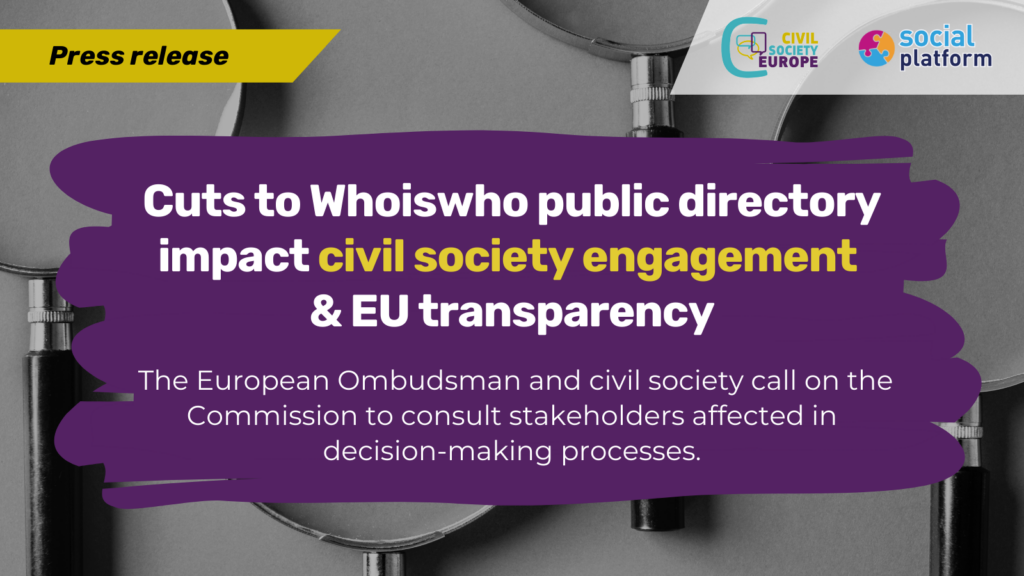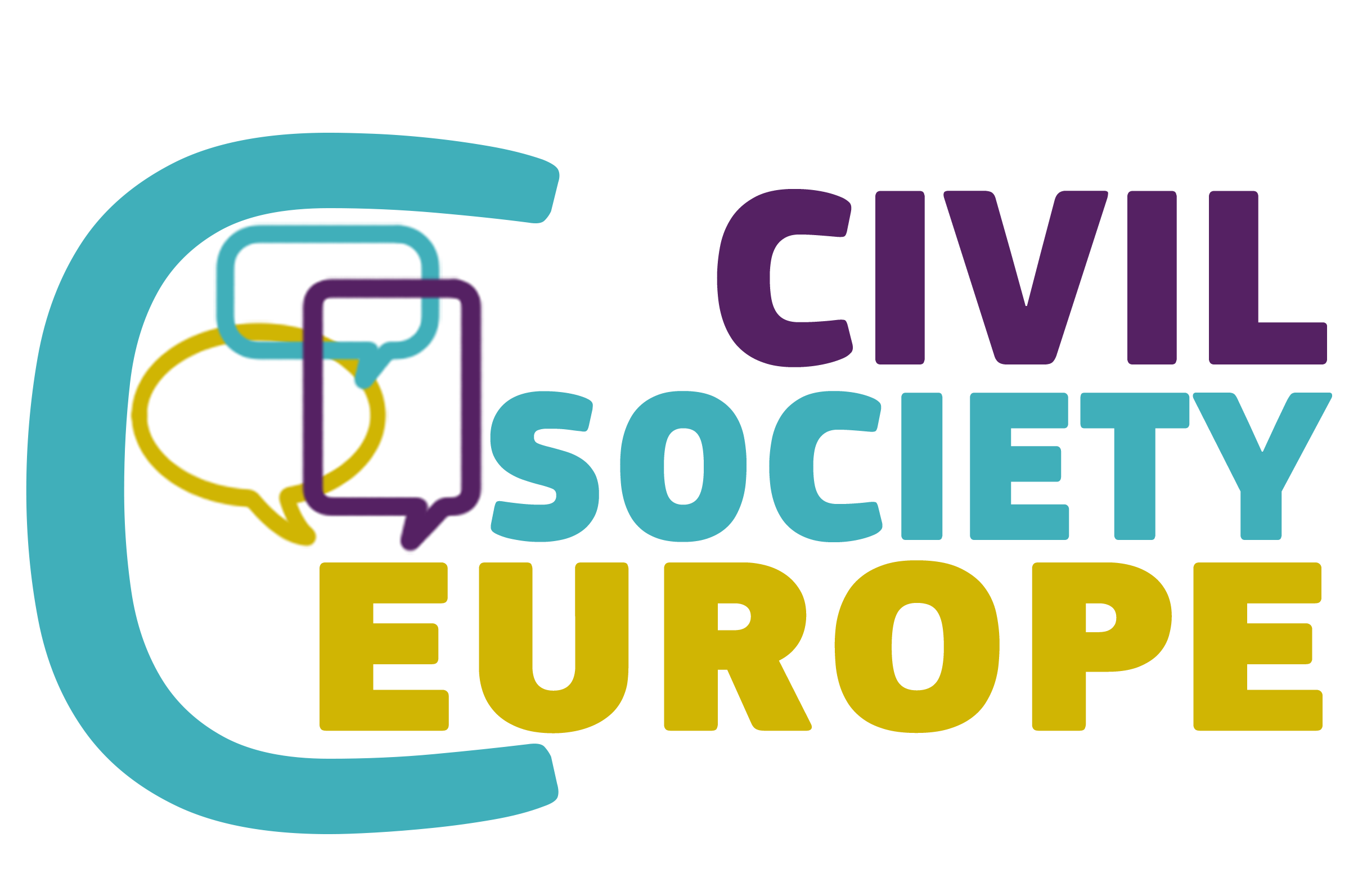In a decision released this 10 September, the European Ombudsman addressed the European Commission’s refusal to review the removal of staff contact details from the ‘Whoiswho’ directory, based on a complaint filed by civil society. The Ombudsman recommended that, for decisions with wide-ranging consequences, such as this, the Commission should appropriately consult stakeholders affected and expressed hope that this assessment will guide future decision-making processes.
Civil Society Europe and Social Platform echoed the Ombudsman’s concerns, as no concrete evidence underpinning the Commission’s decision was provided, nor consultation with affected stakeholders was carried out beforehand. Carlotta Besozzi, Civil Society Europe’s Director, mentioned that “the Commission’s refusal to review its approach despite the Ombudsman’s proposal disregards the detrimental impact the limitation of the Whoiswho public directory is having on civil society engagement, an important democratic process that already faces unduly restrictions and barriers.”

The case concerned a complaint to the Ombudsman filed by Civil Society Europe and Social Platform in July 2023, after the Commission failed to explain its decision to abruptly remove the work contact details of all the staff below the Head of Unit level from the publicly accessible online directory ‘Whoiswho’ in April 2023. The complaint echoed the call of 115 EU-level civil society networks and platforms that raised concerns that the decision undermined institutional transparency and risked creating unequal access to the Commission at all levels.
In its inquiry, the Ombudsman found deficiencies in how the Commission took the decision and made a solution proposal that the institution conduct a new decision-making process. This proposal recommended conducting thorough internal or external consultations, carefully assessing the impact of the removal of staff details, identifying possible alternative measures and carefully balancing the different interests at stake such as the protection of staff from undue influence and the need for transparency.
The Commission, however, did not accept the solution proposal, citing its duty to protect its staff from increasing episodes of undue pressure by outside interests. Moreover, the Commission claimed it was aligning its practices with those of the European Parliament, the Council of the EU and other international organisations, which also do not publish the names of non-management staff.
The Ombudsman expressed regret over the Commission’s refusal and reiterated that decisions taken by the EU administration should be evidence-based and involve appropriate consultation and proactive and comprehensive communication with those impacted, such as organisations seeking to engage with the Commission. While closing the case, the Ombudsman hoped the Commission would consider these recommendations in future decisions with far-reaching impacts.
Civil society’s response
Civil Society Europe and Social Platform argued that the scope of the Commission’s decision seems disproportionate and that other measures could better serve the purpose of striking the right balance between the duty of care and the transparency and accountability of the Commission’s activities, highlighting that other institutions (e.g. some of the Permanent Representations to the EU, or the EEAS itself) have opted for greater disclosure of the names and contact details of their staff.
Laura de Bonfils, Secretary General of Social Platform, expressed: “We believe the Commission’s decision to abruptly limit public access to the Whoiswho online directory is disproportionate and a worrying step back in transparency. We expect all EU institutions to uphold high standards of openness and accountability and align their approaches with existing best examples rather than lowering the bar.”

